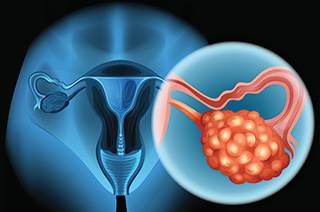Administering niraparib to patients with recurrent ovarian cancer after a complete response (CR) or partial response (PR) to platinum-based chemotherapy may allow patients to continuously maintain their quality of life (QOL) during treatment, according to a study presented at the European Society for Medical Oncology (ESMO) 2017 Congress.
The ENGOT-OV16/NOVA trial (ClinicalTrials.gov Identifier: NCT01847274) previously demonstrated that niraparib significantly prolonged progression-free survival (PFS) in patients with recurrent ovarian cancer following CR or PR.
A mixed-effect growth-curve adjusted for 3 stratification factors and baseline demographics was formed to reflect the relationship between the PRO scores and treatment for each measure. Health status and PRO associations were determined by a cross-sectional analysis of adjusted EQ-5D-5L health utility index (HUI) scores.
Results of the study showed no significant difference in mean PRO scores between the niraparib and placebo arms. The adjusted HUI scores were comparable at baseline in both study arms, but average adjusted HUI scores prior to progression trended higher for the niraparib arm (0.812 vs 0.803 in gBRCAmut cohort; 0.845 vs 0.828 in non-gBRCAmut cohort).
Patients’ overall health utility was not negatively impacted by hematologic toxicities.
Reference
1. Oza AM, Matulonis UA, Malander S, et al. Quality of life in patients with recurrent ovarian cancer (OC) treated with niraparib: Results from the ENGOT-OV16/NOVA Trial. Presented at: ESMO 2017 Congress; September 8-12, 2017; Madrid, Spain. Abstract 930O.
To read this article and more in The Clearity Portal, please click here to login.


